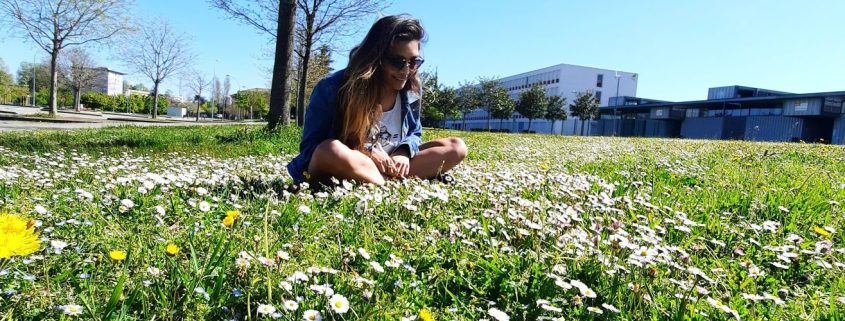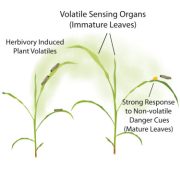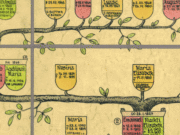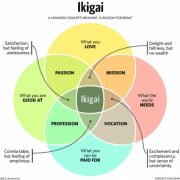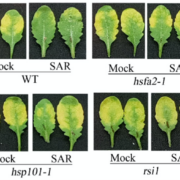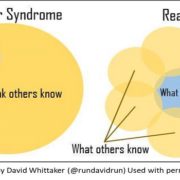Jaishree Subrahmaniam (she/her)
Jaishree is a joint MSCA fellow at the EcoScience, Chemistry and Molecular Biology units at Aarhus University (Denmark). Her PhD at INRAE (France) focused on understanding whether altruism and cooperation, the abilities to help one another, exist in plants. She believes that the biggest benefit that comes from our evolution is the ability to help one another.
Hence, along with pursuing her love for understanding plant lives, she is also a passionate mentor for young girls and women to help them find fulfilling STEM careers. She also founded a mental health support initiative for researchers all over the world to help them in their research career. Recently, she was nominated to chair the science policy group at MCAA (Marie Curie Alumni Association) and act as an external policy advisor and board member for the Initiative for Science in Europe.
She was intrigued by a question posed to her at a summer school in Toulouse. Apparently, in an experiment conducted at the French National Institute for Agricultural Research, two thale cress plants of a particular collection (botanically speaking Arabidopsis thaliana), when grown alone, grew smaller and sickly. But when they were put in specific combinations, they grew greener, better and happier despite having half the available resources. To comprehend and appreciate the reasons behind this curious phenomenon, she joined the same lab to pursue a PhD aiming to understand plants’ cooperation.
Understanding positive interactions in plants involved a plethora of successful and failed experiments, literature reviews from across multiple disciplines such as ecology, evolution, mathematics, economics, philosophy, and sociology. But more importantly, it required a stubborn belief that if nature shaped other organisms to have the ability to help one another, why not plants?
Three years of her research provided the first-ever evidence that plants can understand if their family members are undergoing stress. They empathize and extend support whenever required. The most striking part is that this ability is encoded in their genome. I think somewhere along with her PhD, she realized that this behavior could also be applied to us at many different levels; as human beings, we also carry lessons of courage, resilience, strength in times of struggles but more importantly, what it means to be an altruist, someone who thinks beyond themselves and about the greater good.
The biggest lesson from her PhD stems from our understanding that the greatest benefit comes from our evolution: The ability to help each other and to be kind to each other. She has been a longtime advocate working toward supporting children’s and women’s education through working with various NGOs. In the last year of her PhD, she founded a mental health support group that helps and supports researchers across the world.
Her PhD research opened several avenues and provided an exciting view of the dynamics of plant lives. Her journey so far, however, is only a beginning. She concluded her PhD with more questions than answers, questions that kept me awake several nights. In order to continue her journey in the pursuit of happiness (i.e., research), she applied for fellowships and was recently awarded the prestigious Marie Sklodowska Curie Action Individual Fellowship. This fellowship will allow her to continue understanding and appreciating plant lives better by asking some daring questions on plant behavior. She is trying to decipher the chemical language of plants in her current research. Finally, she wishes one day she would be able to answer the question the 5-year-old her had in mind, “What all does a plant know?”.
This biography was drafted by Jaishree Subrahmaniam. Jaishree is a joint MSCA fellow at the EcoScience, Chemistry and Molecular Biology units at Aarhus University in Denmark.
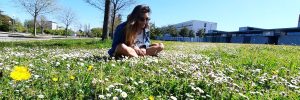
Photo of Jaishree sitting in a field of flowers in Aarhaus, Denmark


